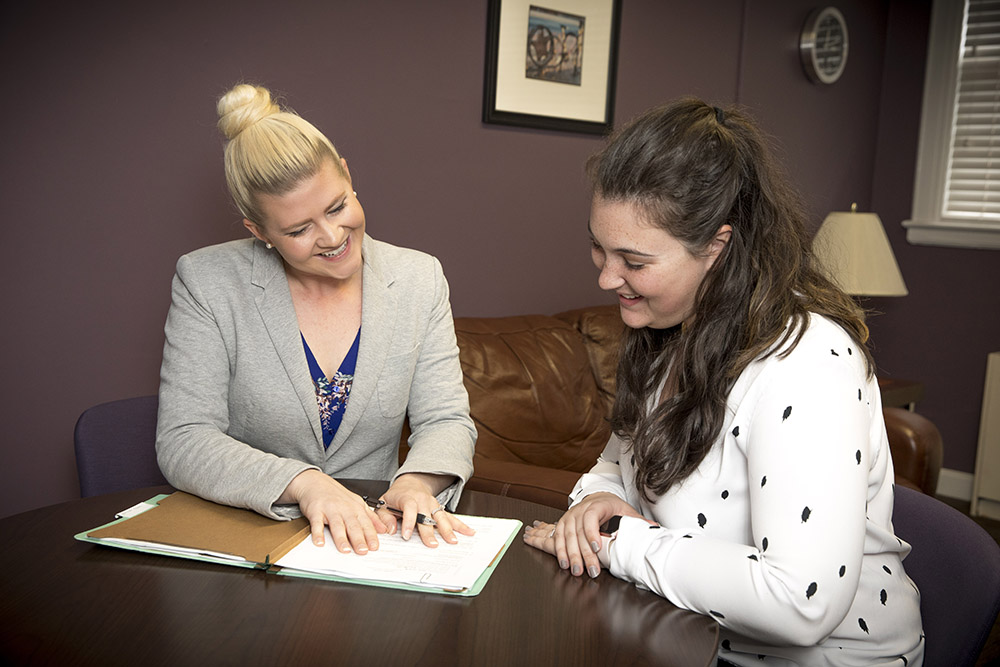Two weeks.
That’s how long it took the University of Georgia’s ASPIRE Clinic to complete a massive overhaul of its operations and pivot to a telehealth model to continue delivering services during the pandemic.
The clinic, which has provided in-person holistic counseling and education services to the UGA and Athens community since 2008, is a unique interdisciplinary model in which trained and licensed faculty members supervise student service providers.
The first remote sessions for clients in need of mental health therapy, financial planning and nutrition counseling began on March 23.
By the end of April, ASPIRE Clinic student service providers had completed 220 appointments, 196 of those for mental health therapy. The clinic continued to offer therapy services at no cost to clients for Mental Health Awareness Month in May, with students facilitating an additional 170 appointments.
“I think the spirit of the response was just a sense of urgency and a real motivation to continue serving the community,” said clinic coordinator Megan Ford. “It was really born out of a dedication and a desire to problem solve, even despite some of our own feelings of upheaval and personal concerns.”
Ford credited the faculty supervisors and student service providers for embracing the commitment to continue offering services during the pandemic, despite the significant logistical challenges involved.
During that two-week period, the clinic had to rewrite training procedures, adapt policies and revise key forms to ensure compliance with legal and ethical standards. Students and faculty also had to be trained on telehealth delivery protocols and software.
“So often, there are unforeseen opportunities in challenges,” said Maria Bermudez, a faculty member in the College of Family and Consumer Sciences who serves as a clinical supervisor in the Ph.D. program in marriage and family therapy. “This was one of those challenges that we could have never predicted. Just the fact that it could be pulled off in such a short amount of time and under such difficult circumstances was incredible.”
Emilie Ellis, a doctoral student in the College of Family and Consumer Sciences department of human development and family science, is a couple and family therapist at the clinic who sees clients with issues related to time management, relationships, depression, eating disorders and more.
The quick switch to remote delivery allowed existing clients uninterrupted access to services at a critical time, Ellis said.
“The major advantage of teletherapy, especially during a pandemic, is the client still has access to a therapist,” Ellis said. “And you’re able to do that while being safe, physically, from the pandemic.”
The successful transition not only gave students much-needed experience with the emerging telehealth model, it also allowed them to continue accruing the necessary clinical hours to stay on track to graduate.
“This is really an essential skill for our students to have,” said Jennifer Gonyea, clinical associate professor in FACS who also serves as a supervisor for marriage and family therapy students at the clinic. “Telehealth is the way things have been heading for a long time in the world of clinical services.”
Gonyea noted many clients enjoy the remote model because they feel more comfortable in their home environments, which can create a better connection with a service provider.
Based on surveys conducted after the switch, many student service providers said the quality of therapy they were able to provide was on par with in-person visits, Ellis said.
“I think it can be just as effective as in-person services,” she said. “And it creates more access for some people who wouldn’t necessarily have access to certain services.”
Three months into the disruption, it’s clear the pandemic has inspired new ways of addressing issues that likely will shape future outreach for the ASPIRE Clinic.
Ford said several marriage and family therapy faculty members are now in the initial stages of developing new mental health initiatives aimed at helping underserved and vulnerable populations such as frontline health care workers.
The clinic also recently added online payment capability, Ford said.
“One of the takeaways is we’ve been able to expand our thinking around how to support the community,” she said. “It’s a point of pride for us that we were able to help our students hone a new skill set while working to find ways to continue to serve the community.”
For questions, contact the clinic at aspire@uga.edu or (706) 542-4486.


